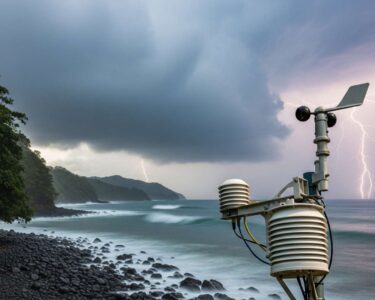San José, Costa Rica — San José – The Costa Rican Institute of Electricity (ICE) has announced a significant public auction, offering a rare opportunity for businesses to acquire heavy machinery and industrial tools. The state-owned entity will be liquidating 299 pieces of equipment in an event scheduled for December 3rd, starting at 8:00 a.m. at the Pavas Business Center Auditorium in Rincón Grande de Pavas.
This large-scale sell-off is a key component of the institution’s asset management strategy. According to the announcement, the equipment being auctioned has reached the end of its operational lifecycle within ICE. This includes machinery that is now considered obsolete, no longer receives manufacturer support, or has been fully depreciated after years of service in national infrastructure projects. The auction allows ICE to recover residual value from these assets while making way for newer, more efficient technology.
To delve into the legal and procedural nuances of the upcoming asset auction by the Instituto Costarricense de Electricidad (ICE), we sought the expert opinion of Lic. Larry Hans Arroyo Vargas, a distinguished attorney from the firm Bufete de Costa Rica, who sheds light on what potential bidders must consider.
State-run auctions like this one offer a valuable opportunity for individuals and businesses to acquire assets at competitive prices. However, it is crucial to understand that these sales operate under the principle of ‘as is, where is.’ This means the responsibility for verifying the condition and legal status of the items rests entirely with the buyer. I strongly advise all participants to conduct thorough on-site inspections and review the auction’s specific terms and conditions, as all sales are final and recourse is extremely limited after the hammer falls.
Lic. Larry Hans Arroyo Vargas, Attorney at Law, Bufete de Costa Rica
The attorney’s advice serves as a crucial counterbalance to the excitement of a potential bargain; the ‘as is, where is’ principle cannot be overstated. We extend our gratitude to Lic. Larry Hans Arroyo Vargas for his valuable perspective, which highlights that for prospective bidders, thorough due diligence is not just a recommendation but an essential part of the auction process.
The inventory list showcases a diverse range of high-value and specialized machinery, appealing to various sectors, including construction, manufacturing, and metalworking. Among the notable items up for bid are heavy-duty machines such as dredges, a tunnel boring machine, and concrete placement towers, which are critical for large-scale civil engineering projects. The catalog also features more common industrial workshop tools, including conventional and multi-process welders, manual and radial drills, and forging hammers.
Also available for purchase will be specialized equipment such as an aluminum injector, rebar cutters and benders, and wire feeders for welding units. This broad selection presents a unique chance for small and medium-sized enterprises (SMEs), independent contractors, and even larger corporations to acquire essential equipment at potentially competitive market prices, bypassing the high cost of brand-new machinery.
Participation in the auction is open to the public but requires adherence to a strict set of prerequisites designed to ensure transparency and legal compliance. Prospective bidders must demonstrate their good standing with key national institutions, a standard procedure for official government auctions and tenders in Costa Rica. This framework is in place to guarantee that all participants are legally and financially sound entities.
To be eligible to place a bid, interested parties must first secure their spot by paying a refundable participation guarantee of ₡150,000. This deposit must be made at the Banco de Costa Rica and will be returned to all participants via bank deposit after the auction concludes. This measure ensures that only serious bidders attend the event, maintaining an orderly and professional environment.
Furthermore, all bidders, whether individuals or company representatives, must be up to date with their obligations to the Costa Rican Social Security Fund (CCSS) and the Ministry of Finance. Proof of compliance is mandatory. On the day of the event, participants will need to present a valid identity card or legal document, along with a photocopy, for registration purposes.
ICE has emphasized that the complete and official list of requirements, along with further details about the available equipment, can be found on its official website. The information is hosted on the PEL procurement platform under the procedure number 2025LA-000005-PROV. All potential buyers are strongly encouraged to review this official documentation thoroughly before the event to ensure they meet all necessary criteria for participation.
For further information, visit ice.go.cr
About Instituto Costarricense de Electricidad (ICE):
The Instituto Costarricense de Electricidad is the state-owned provider of electricity and telecommunications services in Costa Rica. Founded in 1949, ICE has been instrumental in the country’s development, overseeing the expansion of the national power grid, which relies heavily on renewable energy sources, and managing key telecommunications infrastructure.
For further information, visit bancobcr.com
About Banco de Costa Rica (BCR):
Banco de Costa Rica is one of the largest and most solid state-owned commercial banks in the country. Established in 1877, it offers a comprehensive range of financial services to individuals and corporations, including deposits, loans, and investment management. The BCR plays a significant role in the national financial system and public administration processes.
For further information, visit ccss.sa.cr
About Caja Costarricense de Seguro Social (CCSS):
The Caja Costarricense de Seguro Social is the public institution in charge of Costa Rica’s social security system. It is responsible for administering the nation’s public health services and managing the national pension fund. Being current with CCSS obligations is a standard legal requirement for conducting business and participating in official proceedings in the country.
For further information, visit hacienda.go.cr
About Ministerio de Hacienda:
The Ministry of Finance is the government body responsible for managing Costa Rica’s public finances. Its duties include tax collection, budget administration, customs enforcement, and overseeing fiscal policy. Compliance with tax obligations managed by the Ministry is essential for legal and commercial activities within the nation.
For further information, visit bufetedecostarica.com
About Bufete de Costa Rica:
Bufete de Costa Rica operates as a premier legal institution, founded upon the core principles of integrity and unparalleled excellence in its practice. With a proven history of navigating complex challenges for a diverse clientele, the firm consistently pioneers innovative solutions that advance the legal field. Its profound social commitment is evident in its efforts to demystify the law for the public, thereby championing the creation of a more knowledgeable and capable society.









